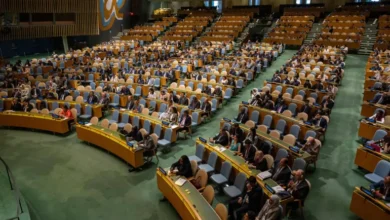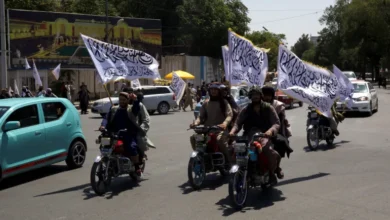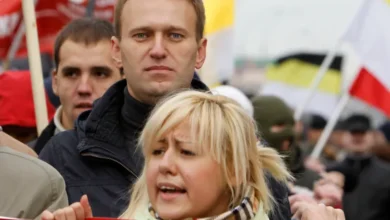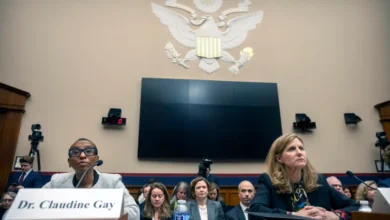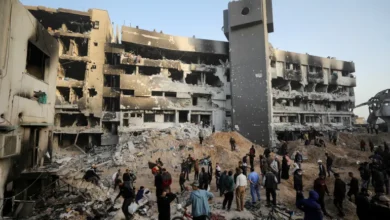Mohammad Yunus can go down in history as the architect of a new Bangladesh
Mandeep Tiwana
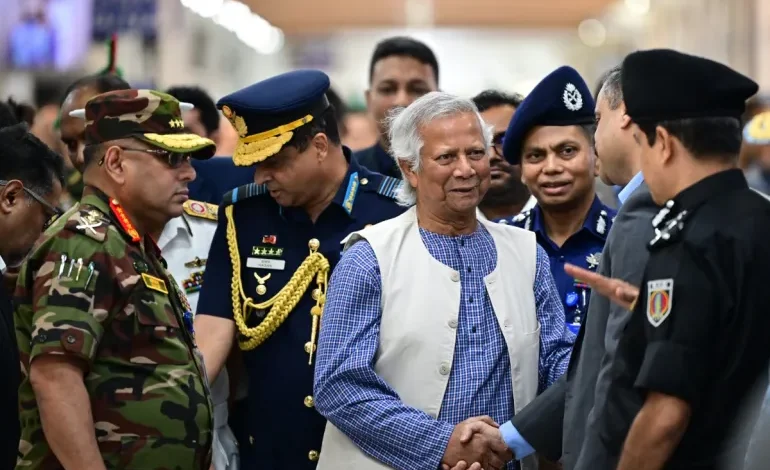
Mandeep Tiwana
After mass protests forced long-term Prime Minister Sheikh Hasina to resign and flee the country in early August, Bangladesh found itself in a unique moment of opportunity to chart a path towards true democracy.
The interim government that was put in place to deal with the legacy of Hasina’s 15-year authoritarian rule is led by Nobel laureate Professor Muhammad Yunus and includes civil society leaders.
Yunus, a celebrated civil society activist, is well-equipped to lay the foundations for a new, truly democratic Bangladesh. He can draw on the experiences of Bangladeshi civil society to enable social cohesion and bring about a much-needed reckoning with the country’s tortured past. There are many ways in which he can protect and expand civic spaces. He can, for example, disband security units responsible for enforced disappearances and torture, reform the much-maligned NGO Affairs Bureau to ensure it supports civil society, or amend the Foreign Donations Law which creates a bureaucratic maze for civil society to receive international funding.
He should, however, act fast, as history tells us moments of opportunity and optimism like this can be fleeting. After a dictatorial regime is removed through revolution, democratic structures can fall prey to a rotation of elites. In the absence of a plan for what’s next, pro-democracy elements can be overwhelmed and derailed by fast-moving events.
In such scenarios, nationalist and authoritarian forces, who continue to hold power due to their alliances with the clergy and military, often fill the emerging power vacuum. At times, the military itself takes over. In other instances, leaders brought in as representatives of democratic forces turn to repression themselves to try and hold everything together.
After mass protests forced long-term Prime Minister Sheikh Hasina to resign and flee the country in early August, Bangladesh found itself in a unique moment of opportunity to chart a path towards true democracy.
The interim government that was put in place to deal with the legacy of Hasina’s 15-year authoritarian rule is led by Nobel laureate Professor Muhammad Yunus and includes civil society leaders.
Yunus, a celebrated civil society activist, is well-equipped to lay the foundations for a new, truly democratic Bangladesh. He can draw on the experiences of Bangladeshi civil society to enable social cohesion and bring about a much-needed reckoning with the country’s tortured past. There are many ways in which he can protect and expand civic spaces. He can, for example, disband security units responsible for enforced disappearances and torture, reform the much-maligned NGO Affairs Bureau to ensure it supports civil society, or amend the Foreign Donations Law which creates a bureaucratic maze for civil society to receive international funding.
He should, however, act fast, as history tells us moments of opportunity and optimism like this can be fleeting. After a dictatorial regime is removed through revolution, democratic structures can fall prey to a rotation of elites. In the absence of a plan for what’s next, pro-democracy elements can be overwhelmed and derailed by fast-moving events.
In such scenarios, nationalist and authoritarian forces, who continue to hold power due to their alliances with the clergy and military, often fill the emerging power vacuum. At times, the military itself takes over. In other instances, leaders brought in as representatives of democratic forces turn to repression themselves to try and hold everything together.
In Pakistan, an initial military coup in 1958 supposedly aimed at creating space for a more stable democracy was followed by several decades of military rule and persistent attacks on civil society. Authorities in the country continue to silence dissent with crackdowns on activists, protesters, and journalists.
In Ethiopia, when Prime Minister Abiy Ahmed received the Nobel Peace Prize in 2019 for finally securing a peace deal with Eritrea, hopes were high for regional peace and stability. Since then, however, he has presided over a bloody civil war in which mass atrocities were committed. The country is in turmoil, with human rights groups urging authorities to stop their crackdown on civic space and respect the rights of political opponents, journalists, and activists.
If Professor Yunus’s government fails to include civil society in decision making and shore up democratic institutions, post-Hasina Bangladesh can also fall into these pitfalls. But these are, of course, not the only possible scenarios. After a revolution, pro-democracy forces can also stay firm and enable the emergence of more complex, but also infinitely more positive, realities.
Sri Lanka, where widespread protests forced President Gotabaya Rajapaksa to resign and flee the country two years ago, is one example. Although things were far from perfect, a transition of power occurred through established systems of democracy in the country. Last month, Anura Kumara Dissanayake, who ran on a promise of better governance and stability, won Sri Lanka’s presidential election.

